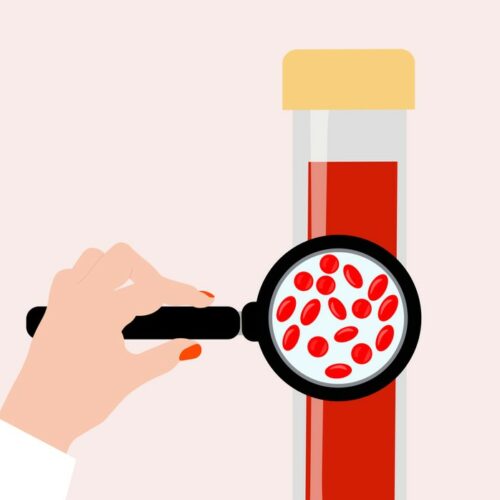
Teresa Demetriou, the national education services manager for the Asthma Foundation, explains the breakthroughs, the triggers, and ways to manage the condition.
No one’s sure why New Zealand has the second highest rate of asthma in the world (after the UK). A recent study by the Asthma Foundation here found that more than 600,000 Kiwis have asthma — including an estimated one in seven children and one in nine adults. Asthma was also responsible for more than 7300 hospital admissions in 2014 and almost half of those were children under 15.
What we do know about asthma is that there is a genetic link and possible environmental factors include diet, climate, economic conditions, antibiotic use in early childhood and the number of respiratory infections in early life.
Is it true there may be an asthma cure?
Asthma is a complex condition with a variety of different causes. While it’s unlikely there will ever be a single ‘cure’, there are promising new research developments. Scientists at Cardiff University have found a protein within the airways they believe triggers most asthma attacks. A drug already exists they think could deactivate this protein, raising hopes for a treatment. The Cardiff team has already shown that the drug works in mice and human tissue samples in the laboratory and the first clinical trials could start within two years. However, a lot more research in humans is needed.
So for now, there is no cure but with the right education and support, most people manage their asthma well with medication so they can go about day-to-day life without symptoms.
Is there a link between fast food and asthma?
A 2013 international study looked at the diet and health of more than 319,000 13 to 14-year-olds in 51 countries and more than 181,000 six to seven-year-olds in 31 countries. It found teens who ate three or more servings of fast food a week were 39 per cent more likely to suffer severe asthma; in younger children the risk was increased by 27 per cent. The study also showed a 15 per cent reduction in asthma among children who ate at least three serves of fruit a day.
One of the study authors, Professor Innes Asher of the University of Auckland, says people shouldn’t be eating fast food three times a week and there was “a lot of potential for bad things in fast food, so we should be clever about it”. The conclusion was that children should be encouraged to eat fresh fruit and veges regularly as they were likely to protect against developing asthma, and reducing fast food consumption would help.
In general, however, foods are not common triggers. Children with food allergies as infants may go on to develop asthma. Allergic reactions to food can cause symptoms such as tightness in the chest and shortness of breath as part of a more generalised allergic reaction known as anaphylaxis, but foods are a rare cause of asthma symptoms alone.
Can chemicals in food cause asthma?
Chemicals found in foods rarely cause symptoms, but there is evidence sulphites (a food and drug preservative commonly found in wine) may cause asthma symptoms in sensitive individuals.
I have asthma and I’m pregnant, can I reduce the risk of my baby having it?
The most important advice for pregnant women is not to smoke because smoking increases the risk of babies developing asthma, bronchitis and wheezing illness.
There is no evidence you can reduce the risk of your baby having asthma by changing your diet when pregnant or breastfeeding. However, if you have food allergies, continue to avoid these foods for your own health. It’s important to let your doctor or midwife know so they can check you’re getting the right nutrition for you and your baby. Early exposure to allergens may be significant in the later development of asthma, however, it may also be protective.
What can I do to prevent my child developing asthma?
Do not smoke around your children or in enclosed spaces where they sleep and play. Exposure to second-hand tobacco smoke increases the risk of children developing asthma or suffering sudden infant death syndrome (SIDS). It is also linked with an increased frequency and severity of symptoms in older children with the condition.
There is little evidence that avoiding allergens will have any long-term impact on your child’s risk of developing allergies — in fact new evidence suggests exposure to cats, dogs and farm animals may reduce a child’s risk. It’s different if your child has already developed allergies and avoiding or minimising exposure may help to reduce symptoms.
Is it expensive to treat asthma?
Most people need to use one inhaler (a preventer) every day and a second inhaler (a reliever) occasionally. Medication is fully subsidised, but there are prescription costs associated, depending on the GP.
Where can I go for help and advice?
The Asthma Foundation recommends patients see their GPs and use their medication as prescribed. The foundation’s affiliated societies can make life easier with one-on-one education, advice and ongoing support. Services are either free or available for a small charge. Visit www.asthmafoundation.org.nz.
Common triggers for asthma
- Animals
- Colds and the flu
- Dust mites
- Exercise
- Fumes
- Medications
- Pollens and plants
- Smoke
- Temperature
- Premenstrual and hormone changes
Article sources and references
- Ellwood P et al. 2013. Do fast foods cause asthma, rhinoconjunctivitis and eczema? Global findings from the International Study of Asthma and Allergies in Childhood (ISAAC) Phase Three. Thorax 2013; Online First: doi 10.1136/thoraxjnl-2012-202285https://thorax.bmj.com/content/68/4/351
- Polina L et al. 2015. Calcium-sensing receptor antagonists abrogate airway hyperresponsiveness and inflammation in allergic asthma. Science Translational Medicine 7:284https://stm.sciencemag.org/content/7/284/284ra60.abstract?sid=33faaa58-a629-4d73-b3eb-b1460f79ad48
- Telfar Barnard L et al. 2015. The impact of respiratory disease in New Zealand: 2014 update. Wellington: The Asthma Foundationhttps://www.asthmafoundation.org.nz/research/the-impact-of-respiratory-disease-in-new-zealand-2014-update
www.healthyfood.com










